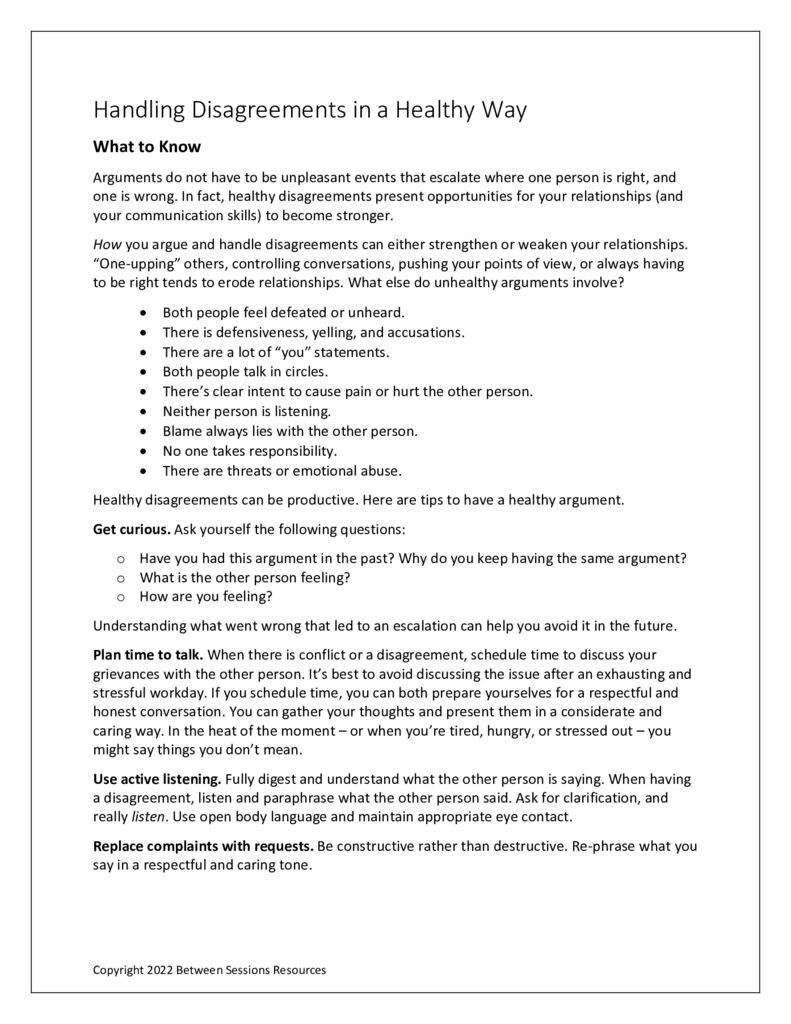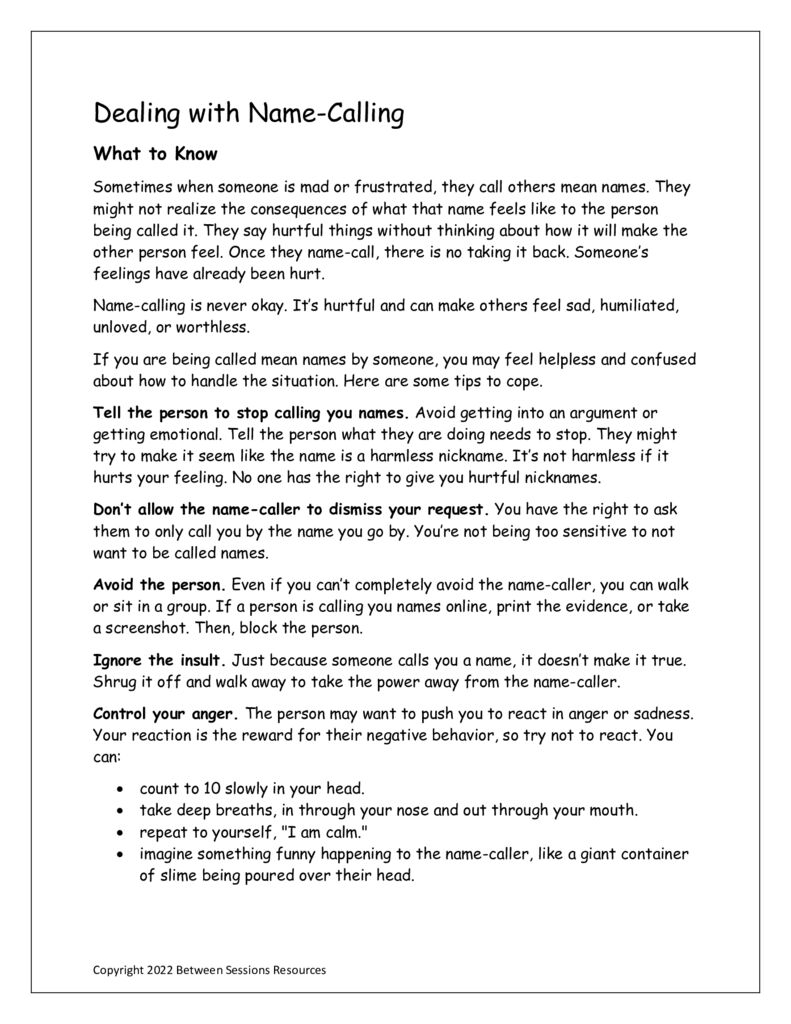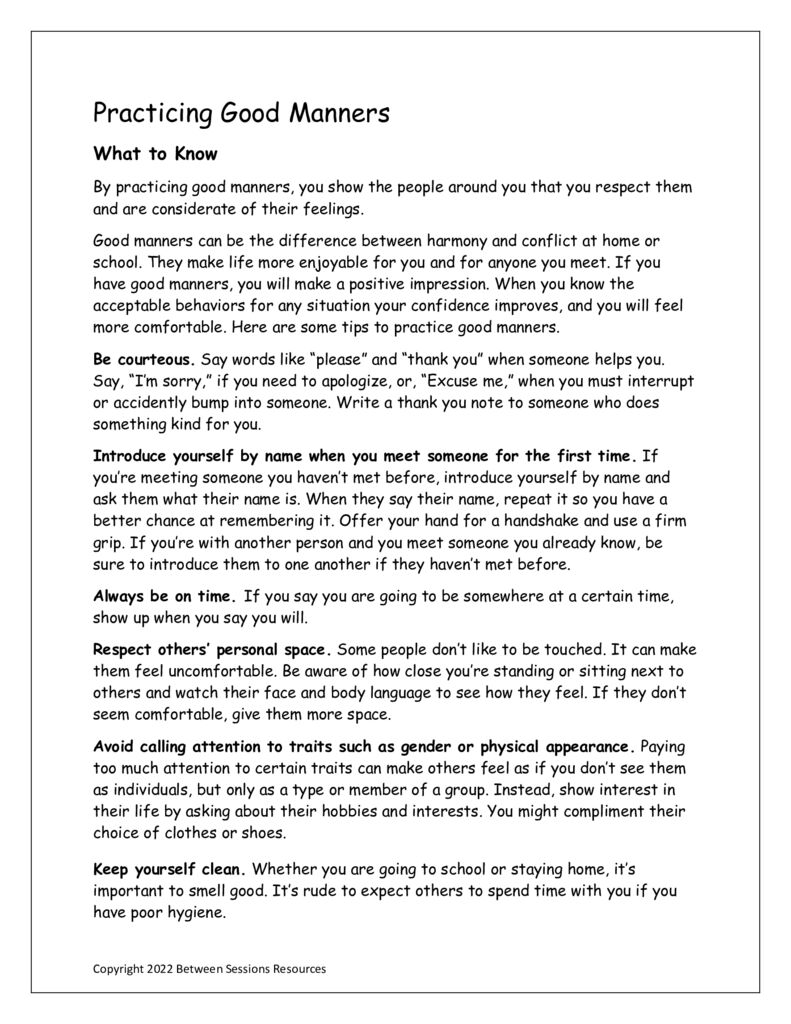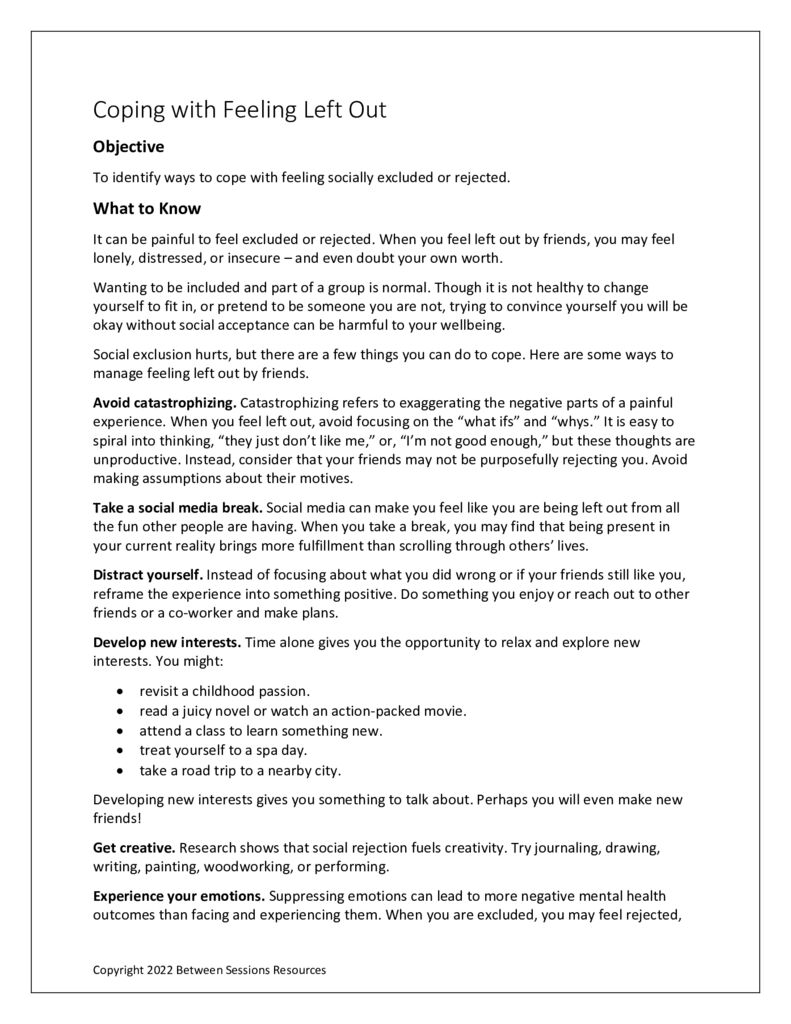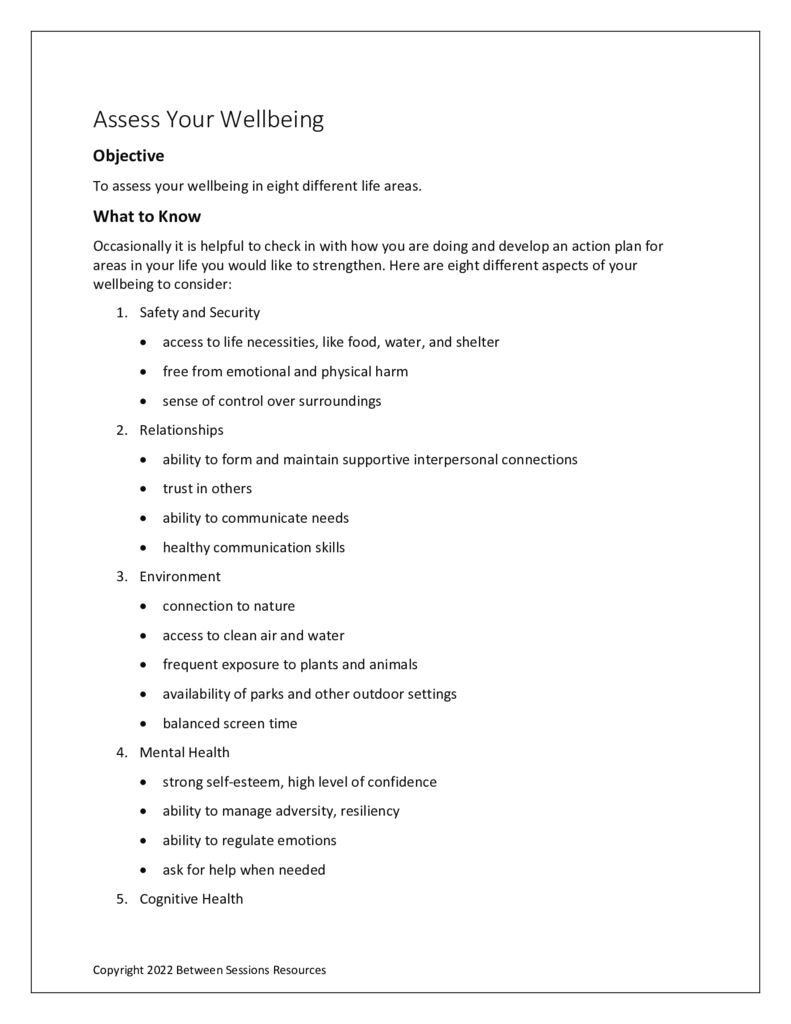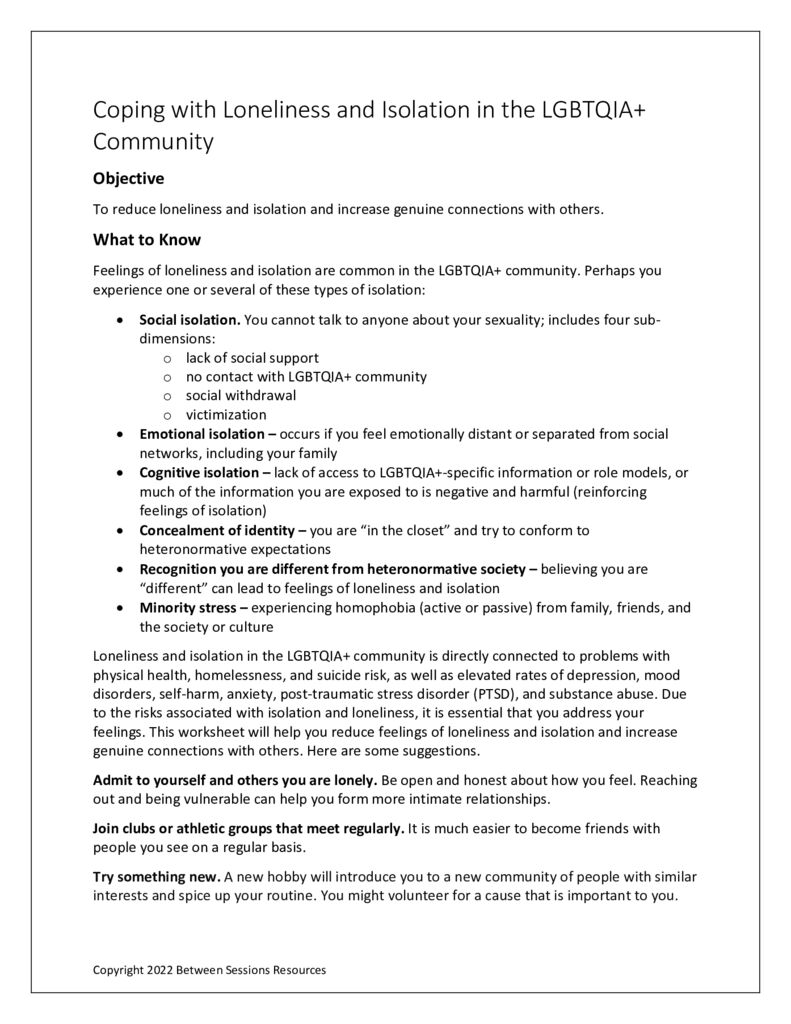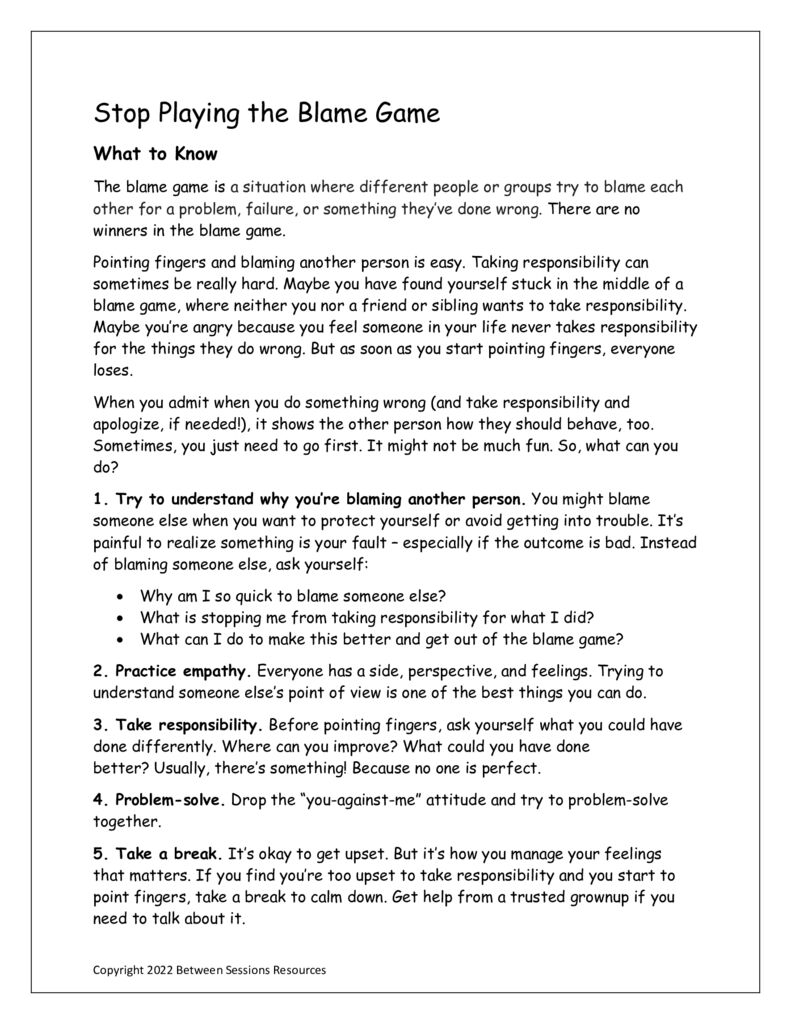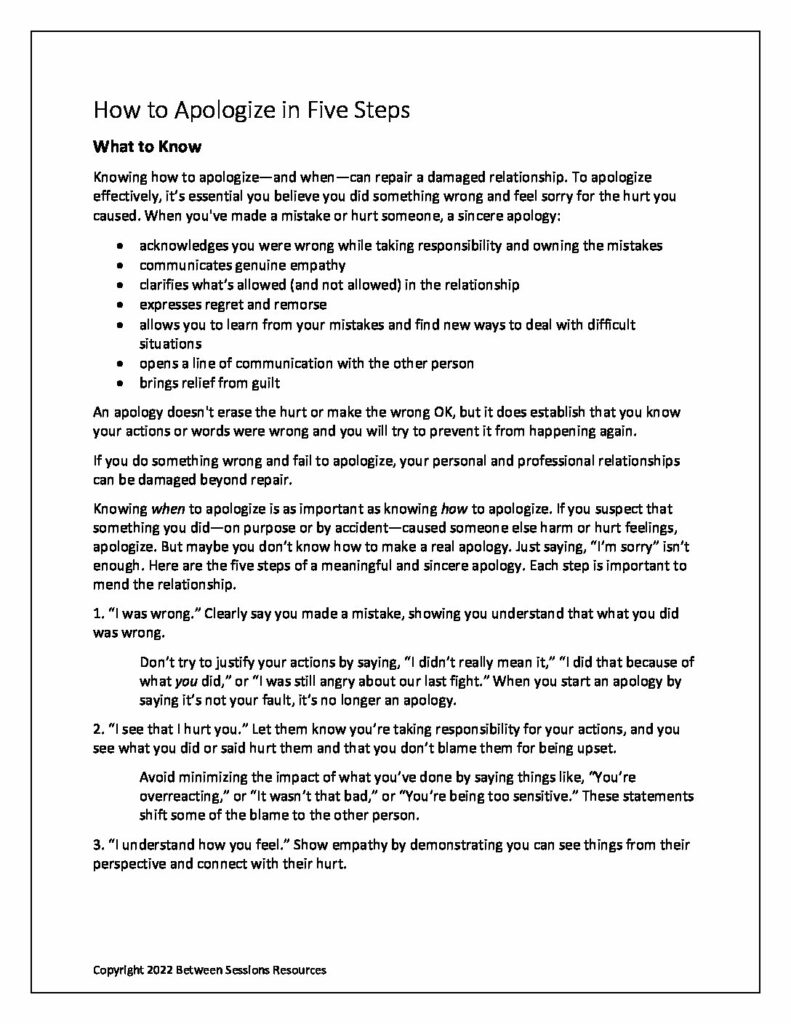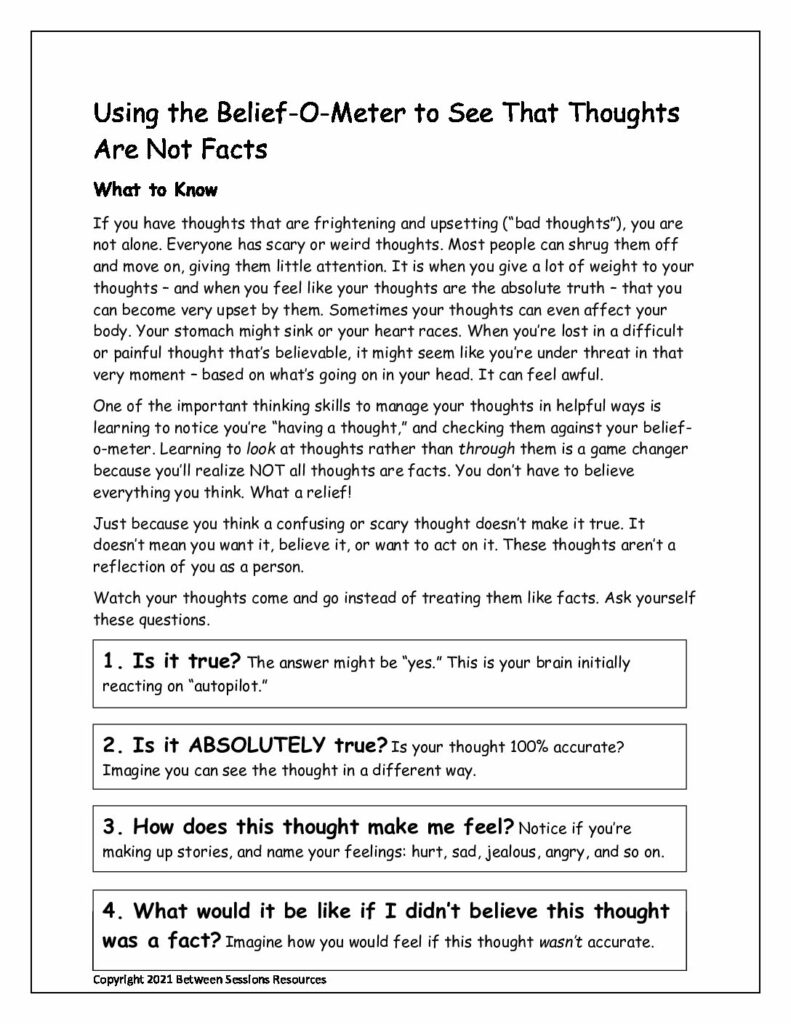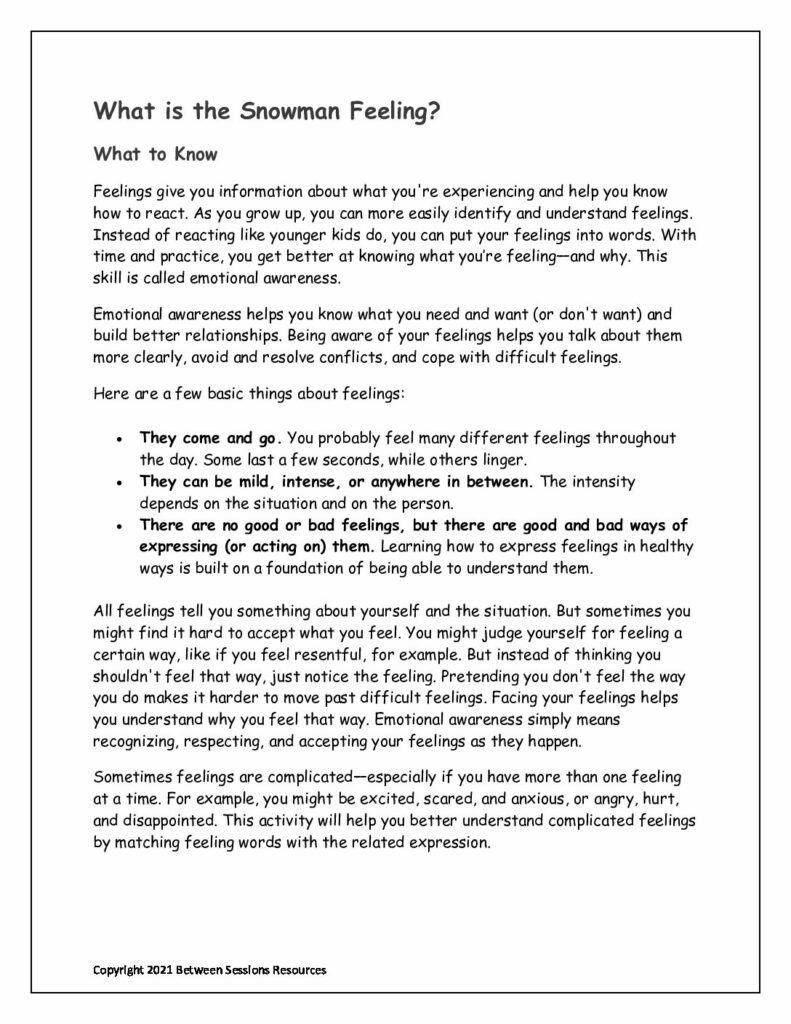This worksheet suggests how to have “healthy” disagreements, which can actually strengthen relationships. The worksheet gives specific strategies on how people can take a more productive approach to disagreements. It then gives questions to help people analyze what they did right or wrong in a recent argument. (0722, communication, relationships, arguing, anger)
This worksheet is designed to help children and younger teens deal with peers or siblings who call them names. It suggests six practical and effective ways to handle name-calling. It also contains questions to help kids or teens explore how they react to name-calling. (0722, teasing, behavior problems, sibling rivalry, bullying, Autism, ASD)
This worksheet is designed to help children understand the importance of having good manners in the home. It lists some important manners to show others that you consider their feelings. Questions ask kids and teens to consider how they would react in appropriate ways. (0422, ASD, ADHD, manners, behavior)
This worksheet was designed for people who feel left out or excluded by their friends. It contains suggestions on how to deal with this problem ranging from finding new interests to more direct communication. Questions help people understand why social rejection may be occurring and a chart is included to help people expand their social circle. (0622, friendship, ASD, Autism, social skills)
The worksheet suggests that people do a wellness checkup in 8 areas of their life: safety and security, relationships, environment, mental health, cognitive health, physical health, community, and purpose. It provides a form for people to rate themselves in each area from “in crisis” to “doing great.”
This worksheet is designed to help people in the LGBTQIA+ community learn tools to deal with loneliness as a result of concealment of identity, minority stress, social isolation, and more. The worksheet gives concrete suggestions on how to connect with others as well as how to deal with problems that are often associated with loneliness. (0622, loneliness, social isolation, LGBTQIA+)
This worksheet is designed to help teens understand that blaming other people for problems does not help any situation. The worksheet suggests a six-step process for understanding a problem and expressing one’s feelings in an appropriate manner. (0522, behavior, social skills, communication)
Apologies can go a long way to repair a relationship, but only when they are sincere. This worksheet explains the five steps in making authentic apologies showing the other person that you understand how he or she feels and that you want to make amends. The worksheet gives people a chance to practice and reflect on this important social skill. (0122, social skills, apology, relationships)
This worksheet is designed to help teens understand that just because they think something is real, that doesn’t mean it is a fact. This cognitive-restructuring technique can be used to help teens deal with fears and anxiety. (2021, fears, anxiety, cognitive restructuring, CBT)
This worksheet helps young teen explore their feelings and the nature of mixed feelings. (1221, middle school, feelings, emotions, emotional intelligence)

